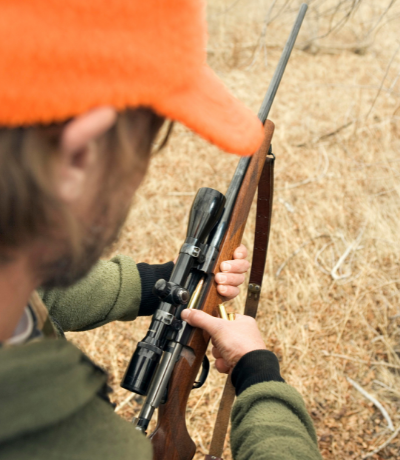Hunting Safety Tips and Guidelines
To have an exciting hunting trip, it’s critical to think about hunting safety before you go. Here’s how to ensure your hunting trip is safe.
19 November 2010
Hunting is an exciting experience that can bring people closer to the environment and help them to develop an appreciation for nature and all that it provides. Before heading out on your hunting trip, it is important that you educate yourself and understand how to stay safe during your trip. You may need to use firearms or other weapons to hunt; this increases the chances of injury. It is important to communicate with your hunting party and other hunters to ensure the safety of the group. You will be doing your hunting in the wild, and aggressive animals may attack you.
Tips to make your hunting trip safe and enjoyable
- Before you set off for your hunt, you should check your equipment to make sure that everything is working properly.
- Only use guns that are properly maintained, registered, and carry you gun permit/license at all times. If you are unsure about the gun laws or regulations in an area you are visiting, contact the local authorities for specific information and
- If you are using new equipment, test it in a safe setting before you go hunting.
- Whenever you see, carry, pick up, or point a gun, you have to assume that it is loaded. A gun can misfire, and it can injure or kill someone when it does.
- When you are not using your gun, you have to make sure that the safety is engaged.
- Ammunition and guns should be stored and transported separately.
- You should not be holding the gun horizontally when you are carrying it during a hunt. You should either strap it on your back in such a way that the barrel is pointing upwards.
- There may be other people at the hunting site, so you should be certain that your target is an animal before you shoot. Also, do not shoot at an animal if there are human beings near it.
- Hunters should wear orange when hunting, so that they will not become other hunters’ target.
- You should not be holding a loaded gun when you are climbing a tree or a fence. Get a hunting companion to hold your gun first, and then ask him or her to hand it back to you after you have finished climbing.
- Do not use alcohol or drugs while you are hunting, this may lower your level of awareness and create unnecessary risk.
- When hunting, it is important to stay aware and alert of your surroundings. Many accidents happen when a hunter is distracted.
- Look far beyond your target to make sure that no human being is present before you release your shot. High-powered ammunition can travel a distance of about one mile. If you cannot see clearly, you can use binoculars.
- Do not shoot at a movement or sound. You have to know exactly what you are shooting at.
- If you are planning to use a tree stand, you should wear a safety harness.
- You should not bring young children with you when you go hunting.
- It is best that you go hunting with a partner. If you cannot find someone to go with you, you should let your family members or friends know where you will be going and what time you will return.
- Make sure that all the animals you shot are dead before putting them in your vehicle.
- Check all your belongings and equipment before you leave the hunting ground, so that you will not bring unwanted animals home. Sometimes, snakes or other harmful animals may sneak into your bags, and you will be in for an unpleasant surprise when you get home.
- Take good care of your guns when you are not hunting, because a properly maintained gun is less likely to misfire.
- Find out about hunting rules and regulations in the state where you will be hunting. Every state has different hunting rules, and you have to make sure that you follow all the rules while you are hunting.
Protect yourself from the unexpected
While it helps to be extra careful, you cannot be sure that accidents will not happen during your hunting trip. There are many ways to be injured while hunting. Hunters may be wounded by an accidental gunshot, fall from a high place, or be attacked or bitten by dangerous animals. They may need emergency medical care if you suffer serious injuries, and it may cost a lot of money to hire rescue services and get medical treatment.
To ensure that your hunting trip will not result in great financial loss, make sure that you have a travel insurance policy that provides the coverage you need. There are travel insurance companies that offer special policies for hunters, you can find out more about them by doing some research on the Internet. It is always better to get a travel plan from a reputable insurance company, because a good insurer offers excellent emergency services. These services are especially important for hunters.
Related topics
Damian Tysdal is the founder of CoverTrip, and is a licensed agent for travel insurance (MA 1883287). He believes travel insurance should be easier to understand, and started the first travel insurance blog in 2006.
